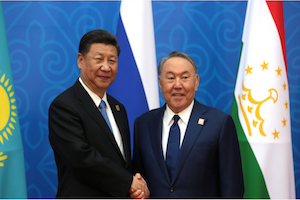A Chinese Base in Central Asia
By Stephen Blank
April 12, 2018, the CACI Analyst
During January and February, several reports surfaced of a new Chinese military base in Afghanistan’s Wakhan corridor. According to Afghan officials, China and Kabul discuss building a base in Badakhshan and China will send an expert delegation to Kabul to determine the exact site, and will fund the base and all of its material and technical expenses, including weapons and equipment. China has denied these reports as they contradict its long-standing position that it is not seeking foreign bases or intends to intervene militarily in Central Asia. However, witnesses have reported seeing Chinese and Afghan troops on joint patrols. Moreover, there is a long record of signs of a growing Chinese military interest in Central Asia.
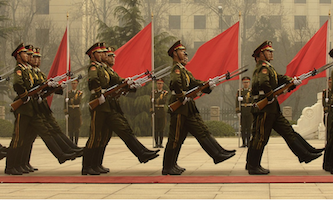
Growing Chinese Interests in Georgia
By Emil Avdaliani
March 15, 2018, the CACI Analyst
The Free Trade Agreement between China and Georgia, signed in 2017, came into force on January 1. This will allow Georgian products free access to one of the world’s largest consumer markets, and will free approximately 94 percent of Georgian products from customs taxes. The growth of China’s economic interests has increased Georgia’s hope of playing a role in in Beijing’s Belt and Road Initiative (BRI). By extension, China’s increasing presence in the South Caucasus raises questions regarding the compatibility of Beijing’s interests with those of the region’s traditional hegemon, Russia.
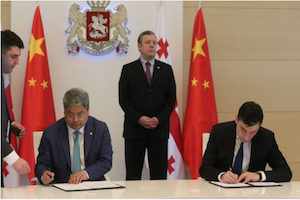
China to Provide Military Assistance to Afghanistan's Badakhshan Province
By John C. K. Daly
March 9, 2018, the CACI Analyst
In December 2017 during a meeting in Beijing between Chinese Defense Minister Chang Wanquan and Afghan Defense Minister Tariq Shah Bahrami, China’s Central Military Commission vice chairman Xu Qiliang stated that China would build a military facility in Afghanistan’s northeastern Badakhshan province to “strengthen pragmatic cooperation in areas of military exchange and anti-terrorism and safeguard the security of the two countries and the region, making contributions to the development of China-Afghanistan strategic partnership of cooperation.” China’s main motive is to interdict the flow of Uyghur militants to and from Xinjiang, yet the initiative potentially has wider implications for Afghanistan and the region.
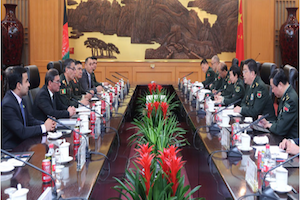
Turkmenistan's Gas Export Dilemma
By Dmitry Shlapentokh
November 15, 2017, the CACI Analyst
At first glance, Turkmenistan’s decision in January 2017 to stop selling gas to Iran was a minor episode in the context of an otherwise friendly relationship between Tehran and Ashgabat, as indicated by several meetings of high Iranian and Turkmen officials following the clash over gas deliveries. However, the tension with Iran could imply serious problems for Turkmenistan and lead to increasing dependence on Beijing, regardless of all Ashgabat’s maneuvering. Turkmenistan’s fallout with Iran also limits the ability of both the West and the South to access Central Asian gas and facilitates an increasing Chinese influence in this part of Eurasia, providing additional opportunities for China’s resurrection of the Silk Road.
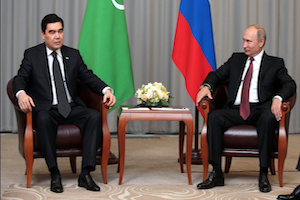
China's Aluminum Industrial Capacity Cooperation in Kazakhstan
By Tristan Kenderdine
October 19, 2017, the CACI Analyst
International Capacity Cooperation is China’s policy answer to comparative advantage, a vast state-planning exercise to coordinate China’s trade and investment strategy in external geographies. It is the practical industrial policy matrix allowing industries, local governments, and policy banking to intersect with partner economies as part of the wider geoeconomic Belt and Road strategy. For China’s aluminum sector, which is already heavily state subsidized and widely considered to be dumping on international markets, it represents an opportunity to extend the lifespan of the industrial policy and policy bank model. The formation of an aluminum capacity cooperation enterprise alliance should be a warning signal to the non-ferrous metals industries of China’s trading partners in Central Asia.
